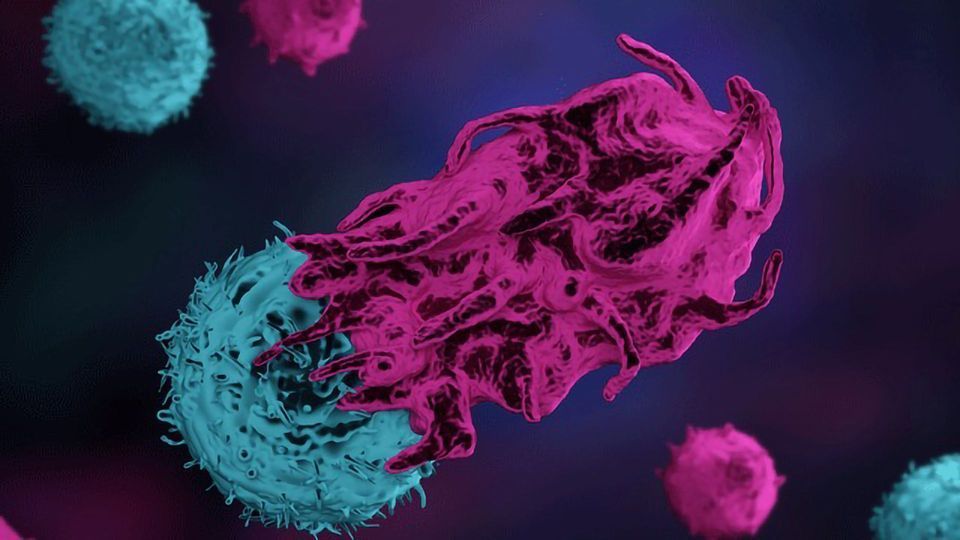New Cell Therapy Approach Boosts Immune Response of T Cells to Malignant Tumors

Complete the form below to unlock access to ALL audio articles.
Dr Christopher E. Rudd, a researcher at the Centre de recherche de l'Hôpital Maisonneuve-Rosemont (CR-HMR) and Université de Montréal, has discovered a new cell therapy approach that boosts the immune response of T lymphocytes to malignant tumours. The results of the study have just been published in the respected journal Nature.
"Our work has identified a new T-cell protein that interacts with the key receptor that detects and responds to cancer antigens," says Prof. Rudd. "We have used those findings to develop a new form of immunotherapy in which hyperactivation of T cells enables them to penetrate and attack tumours. This discovery demonstrates that modulation of the identified protein can activate the immune system and lead to destruction of the cancer cells."
To date, the effectiveness of the new form of immunotherapy against leukemia and some skin cancers has been demonstrated in animals. The next stage will be clinical trials with human subjects.
"This discovery is a scientific breakthrough that will have significantly enhance the immune system's effectiveness in eliminating cancer cells," says Dr. Denis-Claude Roy, scientific and medical director of the Center of Excellence in Cellular Therapy and CR-HMR.
Eventually, this approach could also improve the effectiveness of the new CAR?T cell therapy currently being used at Hôpital Maisonneuve-Rosemont.
Dr Christopher E. Rudd is a professor in the Department of Microbiology, Infection and Immunology, Université de Montréal, and Director of the Cell Signalling in Immunotherapy Unit at CR-HMR. The research was conducted in part while he was a professor at Cambridge University in England and then in his lab at CR-HMR and at Université de Montréal. Dr. Youg Raj Thaker of Cambridge University and Essex University in England, and Dr. Monika Raab and Dr. Klaus Strebhardt of the J.W. Goethe University Medical School in Frankfurt, Germany, were also involved in the research.
Reference: Thaker, et al. (2019) GTPase-activating protein Rasal1 associates with ZAP-70 of the TCR and negatively regulates T-cell tumor immunity. Nature Communications DOI: https://doi.org/10.1038/s41467-019-12544-4
This article has been republished from the following materials. Note: material may have been edited for length and content. For further information, please contact the cited source.

